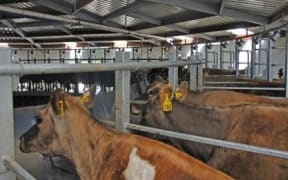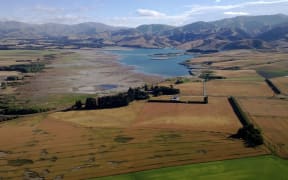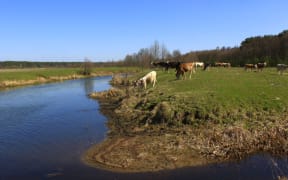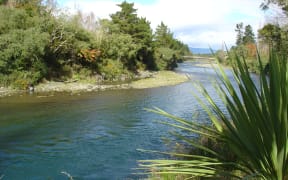The government is failing in its duty to be the guardian of rivers for New Zealanders by setting the bar for water quality too low, the opposition says.
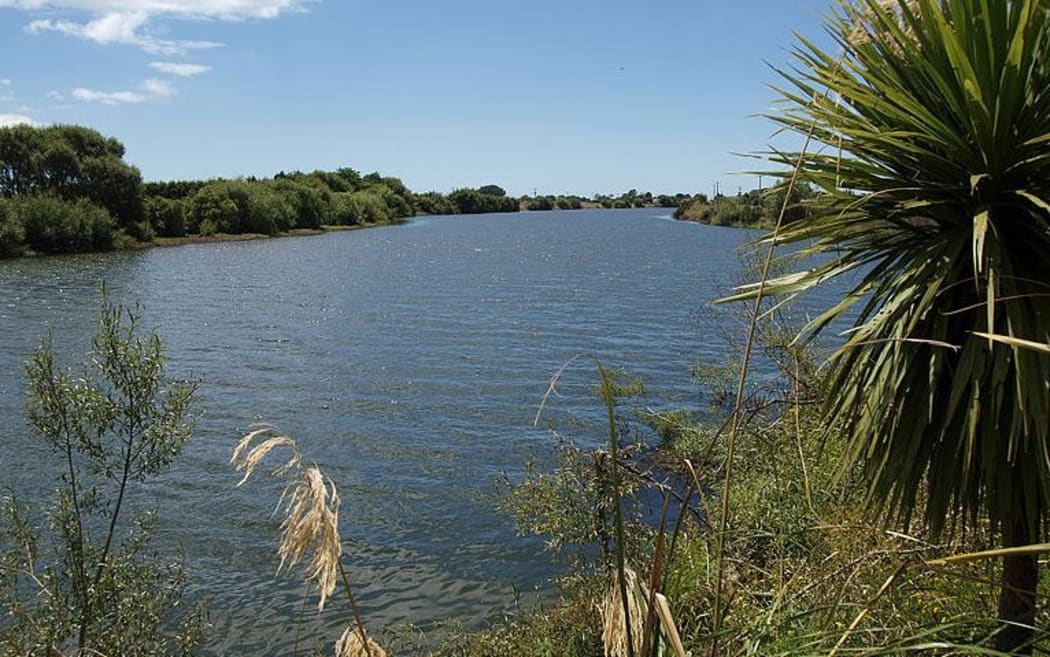
Photo: WikiCommons / Ulrich Lange
Environment Minister Nick Smith yesterday released a document outlining 23 initiatives for improving the management of fresh water, but despite being touted as new, many are not.
The decision to exclude some animals from waterways from next year was announced in 2014, as was a $100 million fund to buy and retire areas of farmland next to important waterways.
The Labour and Green parties are worried that the national bottom line for water quality has not changed, but remains at water "suitable for wading or boating".
Labour's environment spokesman David Parker said the baseline for water quality was ridiculously low.
"Waterways have to be good enough to wade in, but not good enough to swim in. That means that the rivers that I used to be able to swim in and put my head under, now you can't do that safely.
"I think that it's lamentable that this clean, green New Zealand has got to the position that our standard of water quality for our rivers is you can go up to your knees but if you put your head under you might get sick."
Green Party water spokeswoman Catherine Delahunty said the proposals were disappointing and the country was stuck with a wadeable and boatable bottom line.
"That's not what Kiwis want -- we want swimmable rivers. Although they have come up with some initiatives that look good, unless we have a strong national standard that says swimmable rivers, it will really not be much progress."
Swimmable standard "not realistic"
But the government said it was not realistic to have rivers at a swimmable standard all the time.
Dairy farmers and pig farmers will be required to fence their stock from waterways by July next year, with a gradual rollout to dairy grazing farms by 2025, and all beef and deer farms by 2030.
Dr Smith said it was "unrealistic" to make all farmers comply sooner, as fencing off thousands of kilometres of waterways would come at a big cost.
Those who did not comply could be instantly fined $100 per animal, up to a maximum of just $2000.
Mr Parker said the lag time on getting all stock excluded was "astonishing" and a programme in favour of pollution, while Ms Delahunty said although farmers were getting a long time for the stock exclusion programme, the bigger issue was what land is used for.
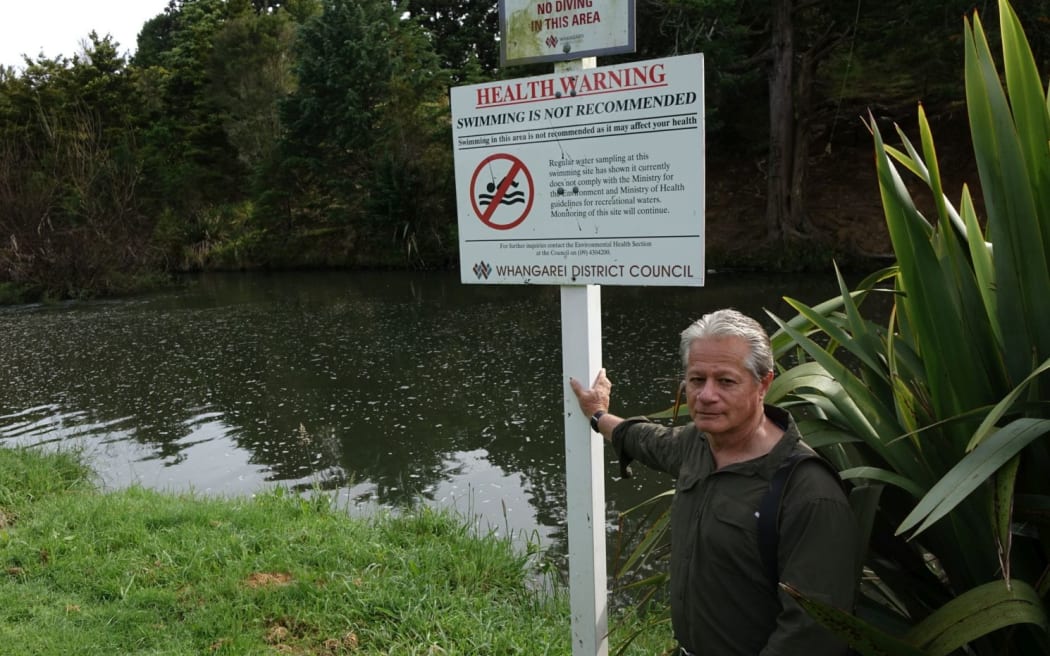
Freshwater campaigner Milan Ruka at a Northland swimming hole. Photo: RNZ / Lois Williams
She said nitrogen was the real problem, and there should be a moratorium on further dairy conversions to protect lakes and rivers and reduce fresh water pollution.
The Maori Party said more informed discussion was needed than what was in the document outlining the initiatives when it came to iwi rights on fresh water.
It said while the document acknowledged that the Waitangi Tribunal recognised that hapū and iwi do have proprietary rights to control access to and the use of local waterways, it suggested that no one owned the water.
The party's co-leader, Te Ururoa Flavell, said that was an unhelpful starting point for public discussion.
"Iwi have discussed these issues in good faith with the government for the last seven years. The public should be encouraged to understand the nature of those rights rather than resorting to slogans", says Mr Flavell.

